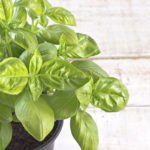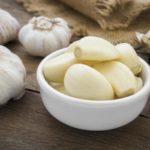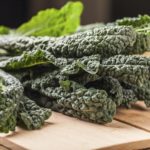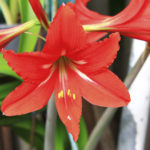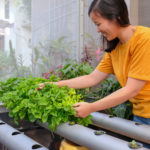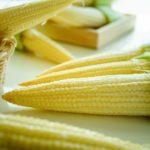Feed the Soil, Not the Plants
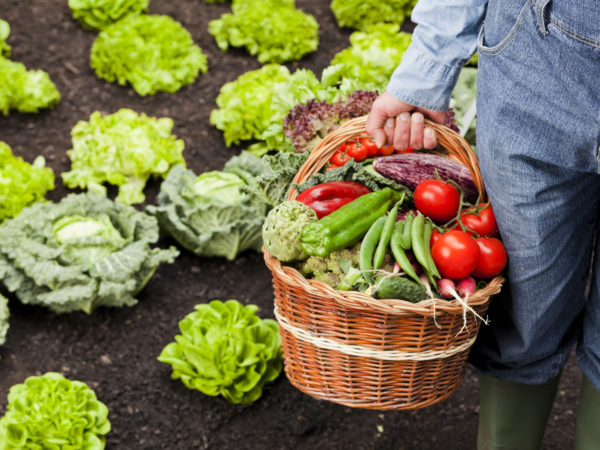
The concept of organic gardening is NOT new. In fact, the use of chemical fertilizers and poisons are the new concepts, which really became the norm over the course of the twentieth century. Why did we start using such chemicals? To make a long story short, we began to ruin the soil: our plows compacted the lower levels of the soil profile, causing anaerobic conditions that bred pathogens. We also depleted soil fertility by over-farming. In short, we did harm to the biology of the soil, which is essential for plants to live and thrive.
Plants are not independent organisms. They are highly dependent on many other critters in the soil: fungi, bacteria, nematodes, microarthropods, protozoans, insects, worms… the list goes on. We have barely begun to understand all the relationships between plants and these other life forms. In fact, we hardly know anything about soil biology. The vast majority of critters that live in a cup of your garden soil remain unidentified. Part of this problem is that they are so small. It is a difficult world to observe. But we are beginning to understand some important general things about soil.
We know that disturbed soils are generally bacterial-dominated, and often anaerobic. In general most plants (except opportunistic weeds, and some riparian plants) don’t care for these soils because the biological diversity that supports them is mostly missing, and these soils tend to be dominated by opportunistic species of microorganisms. On the other side of the spectrum are the aged, undisturbed soils of wild lands (quickly disappearing from our world). These soils are diverse, and fungal dominated. There are lots of bacteria, but they tend to be more of the kind that support plant life, or are innocuous. If you could have lots of patience, and live an unnaturally long life, you could take soil samples of a disturbed plot of land, and continue to do so throughout all its successive phases: From the weed-dominated plot, to the weed field, to the early grassland, to the developed meadow, to the scrubland, and into, finally, the climax community – the forest (or if you live where I do, the saguaro cactus forest). The soil samples would increasingly get more fungal, less bacterial, and the diversity actually increases, while the out-of-control pathogens are kept in check.
What does this have to do with fertilizing your plants? When you put inorganic fertilizer in the soils, which are heavy salts, or when you spray pesticides, you kill the biology in the soil. You might give the plant a flush of food. But you will have to keep feeding. All that feeding, all those heavy salts, end up poisoning waterways, your drinking water, and sending the soil toward being a useless barren plot. Ironically these salts also create the conditions that select for pathogenic species that harm what we are trying to grow. We also are suspecting that these sorts of fertilizers might not be so good for our health.
So how does a plant get its food otherwise? Is there a fertilizer fairy who skips around sprinkling Miracle Gro? Thank goodness, no.
In a natural, healthy soil lives a universe of critters eating and excreting. Bacteria eat fungi, fungi eat bacteria, nematodes eat fungi, fungi eat nematodes, worms eat more or less everything, and all of them excrete. Or if not fully consumed, their bodies lay there, caches of nutrients for the taking. Plants are part of this process. Roots actually exude materials that attract fungus and bacteria to gather where they are, so that they can take advantage of this game, too. Some bacteria and fungus actually directly feed plants in exchange for food the plant provides. Fungus can even extend the roots of the plants, growing from the tips out, further into the soil helping the plant find more water and nutrients.
So the operative activity for gardeners should not be “feeding plants,” but rather encouraging a healthy soil ecosystem in which plants will naturally thrive, and play a part in maintaining these cycles.
By Jared R. McKinley, Guest Commentator
DrWeil.com News


